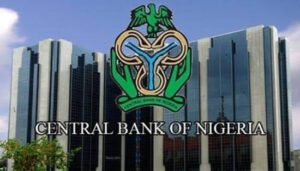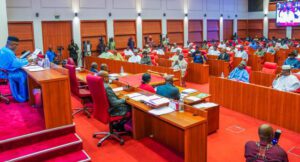
Nigeria’s e-payment transactions surge by over 50% in 2023
By Sodiq Adelakun
In a remarkable leap forward for Nigeria’s digital economy, the latest figures from the Nigeria Interbank Settlement System (NIBSS) indicate a significant 54.55 percent increase in electronic payment transactions, reaching a total of N611.06 trillion in 2023.
This substantial growth from the previous year’s N395.38 trillion highlights the country’s accelerating shift towards a cashless society.
The data revealed that Nigerians are embracing digital payment methods with unprecedented enthusiasm, as evidenced by the 11.05 billion electronic payment transactions recorded in 2023, marking a 75.96 percent rise from the 6.28 billion transactions in 2022.
The NIBSS, which monitors cashless transactions through the Nigeria Instant Payment System and Point of Sales terminals, noted that the total value of instant payments for the year stood at N600.36 trillion, while transactions via PoS terminals accounted for N10.7 trillion.
The surge in instant payment channels, which include mobile payments, reached a staggering 9.67 billion transactions, while PoS terminals saw 1.38 billion uses.
This growth in cashless transactions has been partly attributed to the Central Bank of Nigeria’s (CBN) short-lived naira redesign policy and the imposition of withdrawal limits that began in December 2022.
In response to the policy changes, the CBN had urged the public to adopt alternative banking channels such as Internet banking, mobile banking apps, USSD, cards/POS, eNaira, and others, to carry out their financial transactions.
The move was seen as a push to reduce reliance on physical cash and to bolster the digital payment infrastructure. The current statistics not only reflect the success of these initiatives but also underscore the potential for further expansion of digital payment systems in Nigeria, as the nation continues to embrace technology-driven financial services.
Despite the hardship this policy caused in the first quarter of 2023, the CBN in its ‘Payments Vision 2025’ document argued that the use of cash payment will naturally reduce in 2025. It said by 2025, the country aspired to have a cashless and efficient electronic payment system infrastructure.
“The use of cash will naturally slow with the ‘mobile first generation,’ which will be economically active by 2025, hence one of the focuses of the PSV 2025 is enhancing the cashless policy of the CBN,” the apex bank highlighted.
“As we implement the PSV 2025 agenda, the CBN will continue to ensure that the Nigerian payments system is widely utilised domestically, supports government’s financial inclusion objectives, and meets international standards while contributing to overall national economic growth and development of Nigeria,” it added in its document.
Cashless transactions continue to pale behind cash-based transactions. Chief Executive Officer, Mobile Money, Usoro Usoro recently noted that about 90 percent of all transactions in the country are cash-based.
Growing online payments is dependent on digital-enabled businesses, Osaretin Victor Asemota, growth partner at AnD Ventures and Africa partner for Alta Global Ventures, recently noted.
“Online payments depend on businesses that are digitally enabled. If you do not have enough of them, the market is much smaller than we think.
“The market for fintech in Nigeria is not the consumers; it is the merchants and billers. Without a place for you to spend digital money, there is not going to be adoption. Which is why I kept shouting that the PoS agent model was a temporary aberration. We need more PoS merchants,” he said.
As more Nigerians go online, fraud will increase. 78,584 online fraud cases were recorded between the second quarter of 2022 and the second quarter of 2023.
In its ‘Reports on Frauds and Forgeries in Nigerian Banks,’ FITC disclosed that the growth of electronic payment has given room for the surge in online fraud.
Despite the country’s weak digital infrastructure and ongoing issues with failed transactions, there has been a significant increase in cashless transactions.
The World Bank has acknowledged the lack of sufficient digital and financial infrastructure to support a smooth transition to a cashless economy.
During a recent visit to Nigeria, Wally Adeyemo, the US Deputy Secretary of Treasury, emphasised the importance of improving both physical and digital infrastructure to enable Nigeria to fully benefit from entrepreneurial activities and economic creativity.



